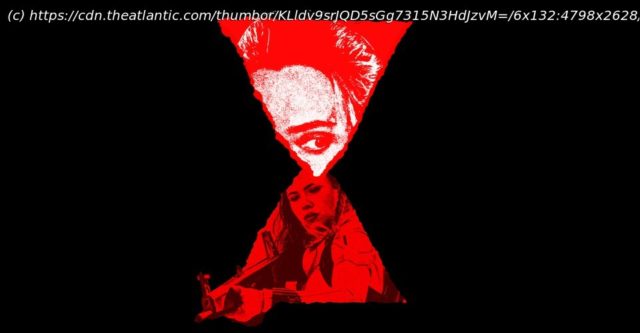After waiting years for her own movie, Natasha Romanoff has gotten a film that never fully embraces her in all her complicated glory.
This story contains spoilers for Black Widow. Black Widow may be billed as a superhero film, but Black Widow is no typical superhero. Natasha Romanoff, the spy turned Avenger played by Scarlett Johansson, is singular when it comes to comic-book heroines: She has no special powers, just a self-reliance and compassion developed from having escaped an oppressive program that tried to turn her into a machine. She’s not a straightforwardly inspirational character like Captain Marvel or Wonder Woman, nor is she the gender-flipped version of a popular male character like Supergirl or Batwoman. And she has waited patiently for her turn to star in a standalone film—so patiently that in the Marvel Cinematic Universe timeline, she’s now dead. Marvel Studios’ first film to be released in theaters in more than two years, Black Widow works as both a prequel and a swan song for Natasha, given her death in Avengers: Endgame. Set after the events of Captain America: Civil War, the movie follows Natasha as she reunites with her adopted sister of sorts, Yelena (played by Florence Pugh). The two embark on a mission to destroy the Red Room, a Russian program that brainwashes women into becoming assassins—and one that Natasha thought she had dismantled years ago, before becoming an Avenger. To finish this unfinished business, they reunite with their “parents,” Russian spies who had raised them as children in America as part of a sleeper cell. In many ways, Black Widow is a domestic drama that focuses on Natasha’s guilt over making it out of Russia, abandoning her “family,” and reinventing herself. It’s a tragedy and an apt portrait of an identity crisis. Any film about Natasha should explore the relationship between her heroic present and her violent past—and how the skills she cultivated as a killer play a part in both. So it makes sense when a villain called Taskmaster appears. Taskmaster is a highly skilled, helmeted human with the ability to mimic any move in sight, which means that when Natasha encounters the character, she’s essentially fighting her mirror image—an avatar of her past who shares all of her skills but none of her humanity. Such copycats are common, even classic enemies for superheroes; they challenge superheroes’ heroism, not just their abilities. Natasha and Taskmaster’s street-level brawls are appropriately bloody and brutal, looking more like scenes from the Bourne and recent Bond movies than like footage from a Marvel production. But this is a Marvel production, and what seems at first like a grounded spy movie buckles under the weight of the expectations that come with being part of the MCU.






